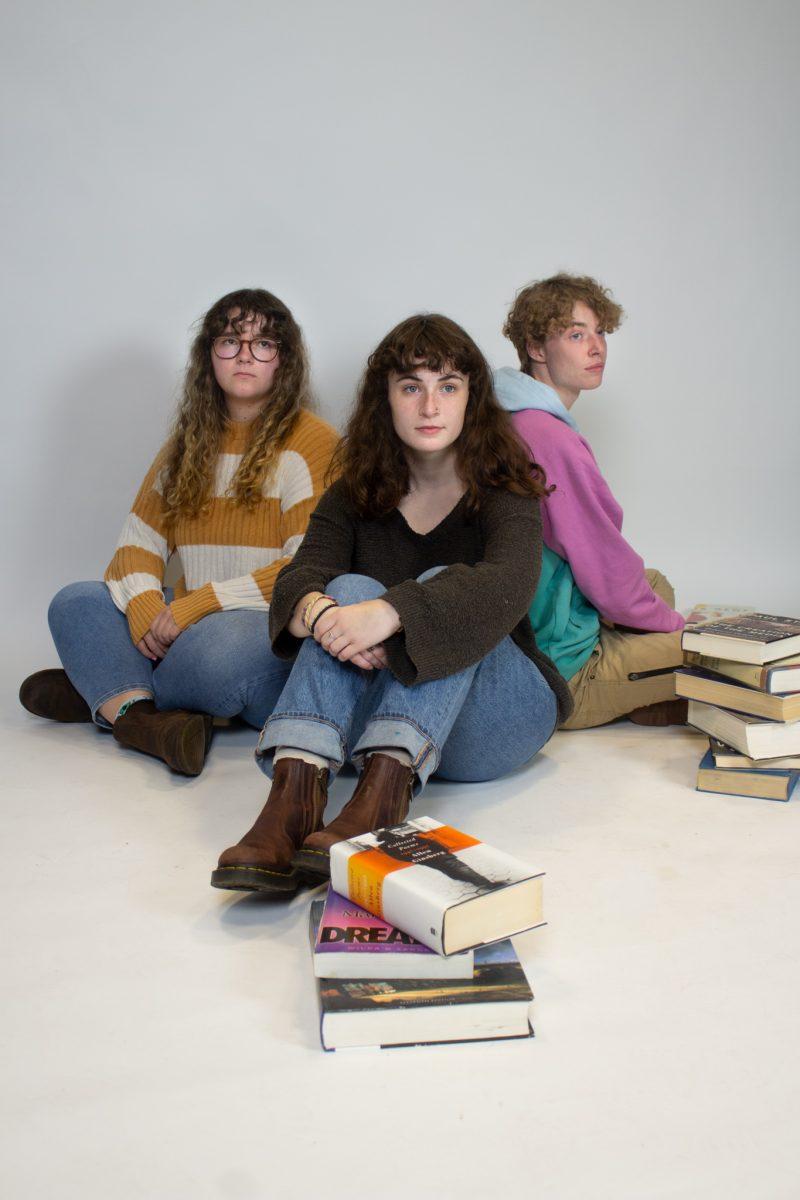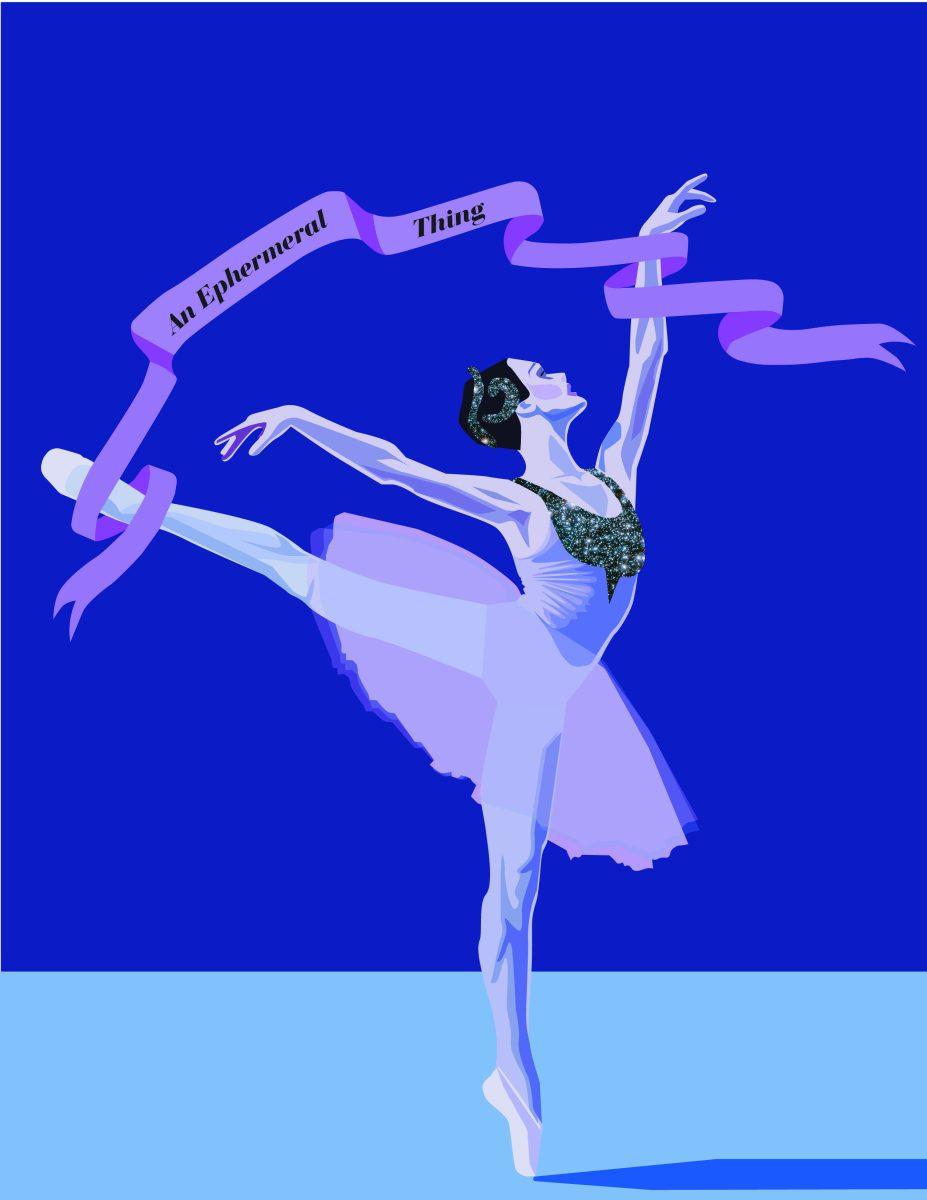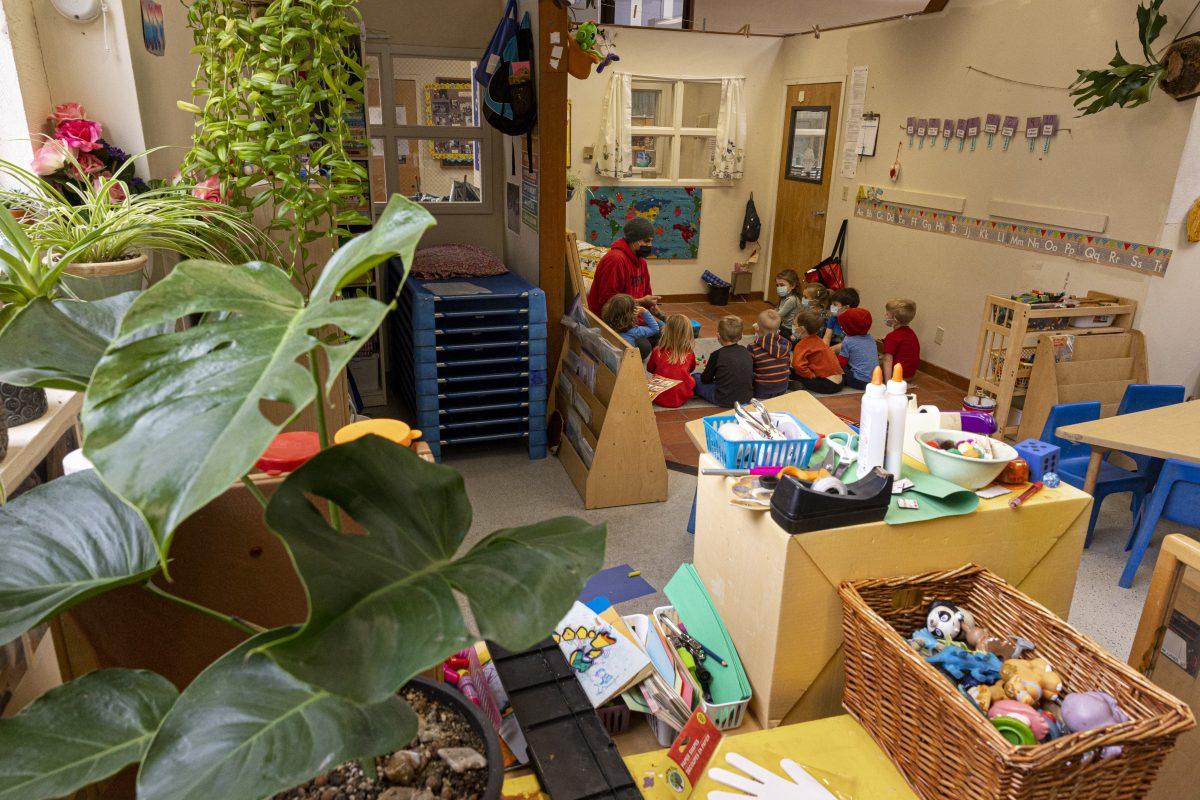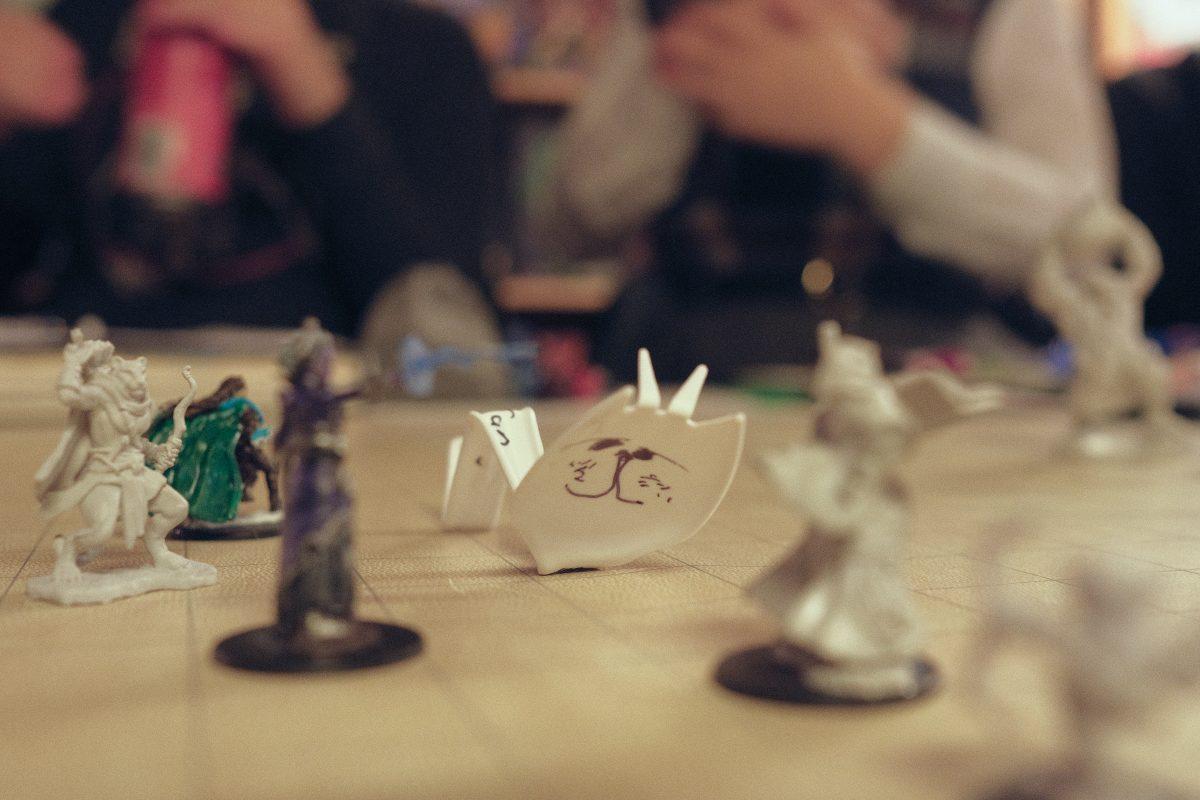Third-year University of Oregon student Taylor Hurt still recalls the excitement and anxiety that gripped her during her first year attending the Clark Honors College. When she stepped down into the basement of Condon Hall for her first class, waves of nerves about being a freshman — about being at the university — enveloped her. It was her second-ever CHC course, in the winter of 2020, when she began to feel a bit more confident as she made friends and began to understand her classes.
Despite the newfound confidence, something became clear in Hurt’s second term in the CHC. She noticed more men talked compared to women even though there were more women overall in the class. As she sat down in the seat next to one of her friends, it was fairly plain to see there were only five people who presented as men out of the group of 19 students. The fact that there were so few male-presenting people in the class did not surprise her. It only confirmed a pattern she had already suspected after noticing a similar ratio in her previous class in the CHC.
A national statistic reported by The Atlantic and The Wall Street Journal shows the largest female-male gap in the history of higher education, with women making up nearly 60% of college students in the spring of 2021. At the Clark Honors College at UO, women have made up 66% of the student body for more than five years.
According to the UO’s Office of Public Records, twice as many women have graduated from the CHC over the past four years compared to men. But while statistics favor women around the CHC, some women still feel classroom interactions and experiences don’t reflect their majority. Other CHC students feel remote learning environments have made these issues less apparent.
Hurt says she hardly noticed the lack of men or majority of women having an influence over the class at first. That was before she started hearing chatter from other students in the CHC. It wasn’t long until Hurt noticed what her peers talked about: the fact that men continued to talk over women.
“I think men have more audacity when speaking in class, and that was something reflected early on,” Hurt says. “The professor would ask a discussion question, and the first three people to talk were the men. Then the 16 of us are just waiting for our turn.”
This isn’t anything new. According to a 1975 Stanford University study observing interruptions in cross-sex discussions, 96% of interruptions and 100% of overlapped conversations were perpetrated by men. Classes with a socratic seminar structure, like many of the honors classes, can open up more opportunities for these events to occur.
Hurt also says she often felt the men who consistently spoke in her class didn’t always understand female experiences. Students were assigned a book during the class that periodically switched between a man’s perspective and a woman’s perspective — after reading a scene where the woman was sexually assaulted, the professor opened discussion about the event to the class.
“[The men] just immediately started talking and having a discussion, and I’m just sitting there mortified,” Hurt says. “Because they’re talking about the validity of the woman’s feelings, and I’m just sitting there thinking, ‘What is going on?’”
Looking back on this moment, Hurt says she feels naive for being surprised by these men not seeing these issues in the same way she did.
“The men in this class did not seem to understand why someone would act or think that way — critically analyzing one’s own thoughts and then acting against them — and that was a moment where it became clear that they maybe did not know what it felt like to be perceived as a woman, where the stakes of how we act and what we say seem much higher,” Hurt says.
Abbie Hall, a UO graduate who dropped out of the CHC, echoed similar experiences. While Hall says she doesn’t remember a specific instance when men dominated classroom discussions, the environment she experienced over the three years she was enrolled in the CHC made her see the issue.
“All of my classes had many more women, or had many more people who were not men,” Hall says. “But given the makeup of the class, it was still probably disproportionately men’s opinions that were being brought to the table more often.”
It was the discussion-based classes that Hall found an issue with. In each class she took, she says there seemed to be an air of unease and discomfort from the women while men dominated each discussion. Hall knew from conversations outside of class that plenty of women had interesting perspectives on the matters covered in class but, ultimately, were too nervous to share their opinions during discussion due to the “infantilizing” atmosphere.
Students were not the only ones adding to the atmosphere, however, according to Hall. A professor — a man who taught African-American poetry — insisted students read aloud language they were not comfortable with. Even after many students reached out and expressed their concern, Hall says, he dismissed their concerns.
After even more protest, the professor opened the floor for discussion on why students should not have to say certain derogatory language, but, Hall says, the professor insisted they could not “cite their feelings as reasons for not wanting to say these words.” Hall says these conditions had sexist undertones, given that the majority of students in the class were women. She says she felt that the professor viewed their protests as irrational or hysterical.
“I think that because women are generally socialized to believe that their opinions are less important than men, that even in a space where there are more women in the classroom than men, men’s opinions are heard more,” Hall says.
Yet there are still some students in the CHC who haven’t encountered these issues. Libby Mackin, a second year CHC student, describes her honors college Zoom classes in a way many UO students are all too familiar with. Many of her peers were signing on to the class with cameras turned off and microphones muted. Oftentimes, she says, everyone seemed less engaged in the class.
Most remote classes lacked the engaging discussions that had been a staple of CHC classrooms, according to Makin. She says many of her peers seemed less inclined to talk in the first place, so normally only one person would talk at a time.
“I took four courses online last year; each one of them were predominantly women,” Mackin says. “So I didn’t really experience being talked over by men.”
Despite the flaws some students found in the structure of these discussion-based courses, there were still silver linings that kept them engaged and motivated during their time in the CHC.
Mackin recalls a remote class she took in the spring of 2021 on the science of and policies concerning psychoactive drugs. Even though the class was taught online, she says it was still very engaging and interesting because of the professor’s efforts and the students’ attentiveness.
Hurt found that the best way to get through some of the tensest moments came from the social group she cultivated in her first year. Even after the feelings of shock from her experiences in her 2020 winter term class, she found solace in one-on-one conversations with a close friend who was also in the class.
“Since we were both in the class, we would end up discussing the things we were learning about,” Hurt says. “We treated it as a way to debrief the content and energy of the class.”
The classroom dynamic was treated as a sort of joke between herself and her friend most of the time, Hurt says. She says the humor they shared at the expense of the problematic discourse was one of the ways the distressing conversations did not have a negative effect on their time spent in class.
Now, as a Resident Assistant for the CHC ARC, Hurt still hears stories about men dominating class conversations from other women in the honors college. Hurt was a part of the CHC Academic Residential Community when she was a freshman. Through the ARC, she found some of her closest friends, and says that was a big reason why she stuck with the CHC.
“It’s something that keeps me connected to my friends and connected to the other people in the honors college,” Hurt said. “If I didn’t have a good social experience, I probably wouldn’t still be in it.”
Hurt, left, and Mackin, center, are both Clark Honors College students, and Owen Clifton, right, is a University of Oregon student. Hurt says, in her second honors class, she realized a lot of the protagonists were women. In discussions, she noticed many of her male classmates would have a lot to say about the material. "We were talking about it, and I was just like, ‘I feel like you have no idea what's going on, which is fine, which is why you're in this class, but also don't assume that you have the most to say,’" Hurt says.












![[Photo Courtesy of the Lara Family]
Ruben embraces his beloved childhood goat, Katrina.](https://ethos.dailyemerald.com/wp-content/uploads/2025/05/katrina-1-1060x1200.jpg)





